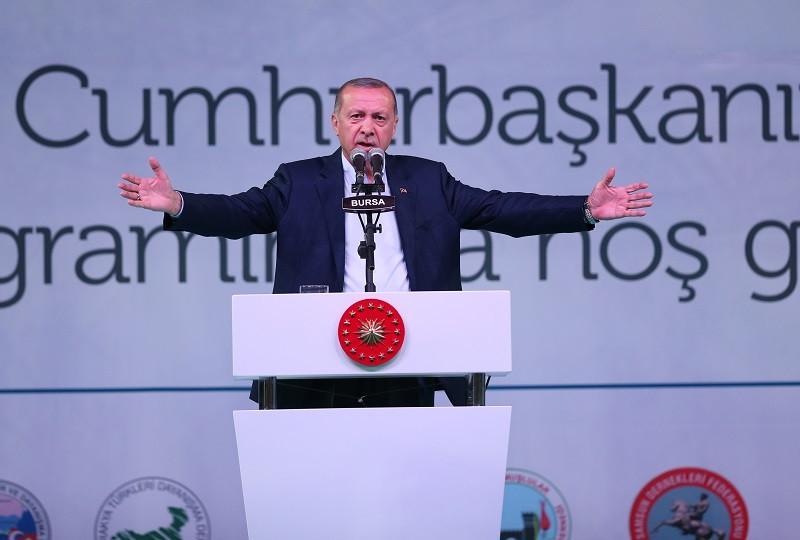Turkish President Erdoğan vows to set up ‘reading houses’ for youth
ANKARA - Anadolu Agency

Turkey’s President Recep Tayyip Erdoğan last week presented a proposal that he believes will ignite the habit of reading among the nation’s youth.
Campaigning for re-election on June 7, Erdoğan vowed to set up public “kıraathanes” — reading houses — in all cities, with both books and treats on offer.
“We’ll build the “Nation Kıraathanes.” These places will be filled with books and there will be cake, tea, and coffee [served],” he had told a rally in the southern Hatay province.
He said people young and old alike would go there to read books and enjoy free treats.
Kıraathanes, literally meaning reading houses, are traditional places in Turkish culture dating back to the Ottoman era where people drank tea and coffee while reading books, newspapers, and magazines.
Erdoğan said these new kıraathanes, open 24 hours, would become a magnet for young people.
Speaking later that day in the capital Ankara, he said the kıraathanes will no longer be places where people play cards, reversing a shift in which the houses became known for non-gambling games.
He said they would measure around 100-400 square meters (1,076-4,305 square feet), depending on the size of the city.
‘Fighting bad habits’
Speaking on June 8 in the central Kayseri province, Erdoğan stressed that these kıraathanes would offer books, newspapers, magazines, and internet access.
Returning to the topic in the western Denizli province on June 10 again, he said they are developing a reading culture in the country, adding that they aim to protect young people from bad habits and wasting time on card games.
Visiting a newly built kıraathane in Istanbul’s Zeytinburnu district, Erdoğan said: “Students say, ‘We aren’t going home, we study here. Because when we go home, other things occupy our time, but we’re just studying here.’”
But the proposal drew ridicule from opposition figures, with one vowing to “provide jobs” to the youth instead of setting up “reading houses” and criticizing the ban on Wikipedia, ongoing since last year.
In an April 2017 referendum, Turkish voters narrowly approved the switch from a parliamentary system to a presidential one.
This April, parliament passed a bill for early elections on June 24, in order to cement Turkey’s move to a presidential system.
Six candidates are running for president — one nominee from his prison cell — while eight political parties are taking part in the parliamentary elections.
Erdoğan has served as president since 2014 — Turkey’s first popularly elected president. Before that, he served as prime minister from 2003 to 2014.
















